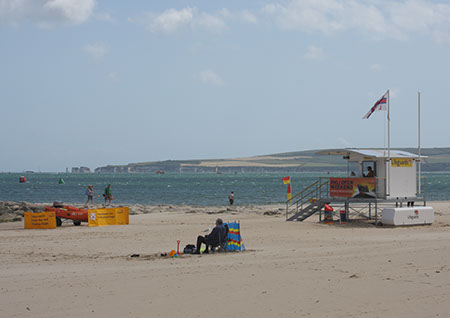VEDA News
Powered by VEDAQuestion: My wife suffers from occasional bouts of intense dizziness and has motion sensitivity. The vestibular nerve got tweaked, and she became totally incapacitated for a long time. She is mostly better now, but things like receiving a massage where she is face down for an hour cause symptoms. I’m looking to understand the vestibular nerve and whether tight muscles, stress, or vertebrae can impact it. Your question reflects something many families notice after a vestibular injury: even when someone is “mostly better,” certain positions, movements, or physical experiences—like lying face down during a massage—can still bring symptoms back. This can feel confusing and discouraging, so let’s break down what’s going on in a clear, practical way. What does the vestibular nerve do? The vestibular nerve carries balance and motion information from the inner ear to the brain. It tells the brain how the head is moving, where gravity is, […]
The post Ask Fiona: Understanding the Vestibular Nerve, Dizziness, and Body Triggers appeared first on Vestibular Disorders Association.
VEDA - Published Tue Jan 20 2026 18:54 View Full Story...
Writing in the Wake How Writing Became My Anchor in a Sea of Uncertainty By Kimberly Warner, vestibular patient and author I’ll be honest, the last thing I wanted to do in the early years of living with Mal de Débarquement Syndrome was write. The constant sensation of rocking and bobbing jumbled my brain, like synapses flooded in stormwater. Words came as fragments, flotsam adrift on a sea I couldn’t steady. Even thinking in complete sentences was a near impossibility. So for three years, I didn’t write anything more than the occasional note-to-self in the margins of my calendar, usually to mark the date of my next doctor’s appointment. At the time, I was looking for rescue, not reflection. Salvation meant finding a cure; I had no desire to lean into this unresolved, disorienting in-between, where process itself becomes the destination. But around year three, a different kind of urgency emerged. […]
The post Writing in the Wake – How Writing Became Kimberly’s Anchor appeared first on Vestibular Disorders Association.
VEDA - Published Fri Jan 16 2026 02:36 View Full Story...
Dr. David Zee, MD, is a pioneering neurologist whose recent generous donation boldly advances VeDA’s medical advocacy programs. As a long-standing member of our Medical and Scientific Advisory Board and now a Trustee, Dr. Zee continues to support VeDA’s mission with profound integrity and vision. Six Decades of Groundbreaking Contributions Dr. Zee’s storied journey at Johns Hopkins began in 1965 as a medical student. After an early immersion in clinical medicine, he devoted nearly 55 years to studying and treating eye-movement and vestibular disorders. His research has profoundly shaped modern neuro-ophthalmology and vestibular medicine. Innovations in the Clinic and Lab Combining bedside observation, animal models, and mathematical modeling, Dr. Zee and his collaborators unraveled complex cerebellar and brainstem mechanisms governing eye movements. Notably, in 1980, with colleagues from Johns Hopkins and the United Kingdom, they identified the first effective pharmacologic therapy for a persistent, pathological nystagmus associated with cerebellar disorders. His co-authored textbook, […]
The post A Legacy of Research and Advocacy – Dr. David Zee appeared first on Vestibular Disorders Association.
VEDA - Published Fri Jan 16 2026 01:47 View Full Story...
Many people know about benign paroxysmal positional vertigo (BPPV)—a very common cause of brief spinning sensations triggered by changes in head position. BPPV is usually treated effectively with specific head-movement maneuvers (called canalith repositioning maneuvers, or CRMs) that help tiny particles in the inner ear settle into the correct position. However, even after successful treatment, a lot of patients don’t fully feel “normal” again. Instead, they develop ongoing, nonspecific dizziness, unsteadiness, or a general feeling of imbalance that isn’t spinning vertigo and can last for weeks to months. This lingering symptom is known as residual dizziness (RD). This review article explains why residual dizziness matters and how clinicians can better recognize and help these patients. Researchers note that RD is extremely common. Studies report that about 23% to 70% of people treated for BPPV experience it, showing that this isn’t a rare problem but a frequent and distressing one, that deserves proper attention […]
The post Research Summary: Understanding “Residual Dizziness” After BPPV and How Doctors Can Better Help Patients appeared first on Vestibular Disorders Association.
VEDA - Published Thu Jan 8 2026 01:11 View Full Story...
“I’ve been doing VRT for two months for vestibular neuritis. My constant vertigo stopped for days, then came back. Why did my symptoms stop and then resume?” That is great news, good job to you for this achievement! The fact that your constant vertigo stopped for days is a big stepping stone in your recovery. Now, take a deep breath and know that you are not regressing, or causing further harm to your system. What you’re experiencing is very common during recovery from vestibular neuritis, especially when doing Vestibular Rehabilitation Therapy (VRT). Healing from a vestibular injury can be tricky and challenging to navigate. It isn’t a straight line; it’s more like a winding path with stretches of smooth ground, followed by a few bumps that catch you off guard. Let’s walk through why symptoms often improve… and then flare up again. Recalibration isn’t linear Your brain is still recalibrating. After […]
The post Ask Fiona: Why do symptoms fluctuate when I’m doing VRT? appeared first on Vestibular Disorders Association.
VEDA - Published Tue Dec 16 2025 18:27 View Full Story...
This article is adapted from The Great Balancing Act: An Insider’s Guide to the Human Vestibular System, published by Columbia University Press. Copyright (c) 2025 Jeffrey D. Sharon. Used by arrangement with the Publisher. All rights reserved. It’s been said that half of medical school is necessary to learn the art of healing, and the other half is required to master the vocabulary. For me, it’s a love-hate relationship. Some of the terms seem to be overly long and complicated for no reason at all. For example, the general name for my field of medical expertise is “Otolaryngology” (which is synonymous with Ear, Nose, and Throat). The name is too long, too hard to pronounce, too hard to spell, and generally confusing for people. Furthermore, despite its length, the term isn’t accurate. “Oto” translates to “ear,” and “laryngo” translates to throat. That leaves out most of the disease areas under our […]
The post Like a Rolling Stone: BPPV appeared first on Vestibular Disorders Association.
VEDA - Published Sat Dec 13 2025 00:38 View Full Story...
Article Summary Persistent Postural-Perceptual Dizziness (PPPD) causes dizziness and unsteadiness that crowds or other busy places can trigger, but it doesn’t involve spinning (vertigo). This condition usually starts after an event that causes dizziness or balance issues, but it can also occur for no apparent reason. Treatment options include medication, balance therapy, and counseling. History PPPD was first identified in 1986 by German doctors who called it phobic postural vertigo (PPV). They noticed symptoms like dizziness without spinning and unsteadiness, often triggered by stress or crowded places. At the time, the signs of PPV were thought to include having an obsessive-compulsive personality, feeling a little depressed, and experiencing anxiety. However, further research on PPV found that it isn’t considered a mental health disorder. Instead, it’s seen as a condition of the inner ear that also involves behavioral aspects. Researchers are also starting to understand how PPPD affects the brain. Studies […]
The post Persistent Postural Perceptual Dizziness – What You Need To Know appeared first on Vestibular Disorders Association.
VEDA - Published Tue Dec 9 2025 18:54 View Full Story...
What this research is about Ménière’s disease (MD) is a condition affecting the inner ear that causes attacks of vertigo (spinning sensation), fluctuating hearing loss, tinnitus (ringing in the ear), and ear pressure or fullness. Although it’s been known for many years, its cause remains unclear. This review examines what we know about the genetics of MD—how genes may contribute to the disease—and how that knowledge may help us understand who gets it and how to treat it. Why the genetic approach matters The authors point out that MD is likely a genetic disorder, and environmental factors can trigger the symptoms (like loud noise, infections, autoimmunity, and allergies). Anatomical differences in the temporal bone also suggest a genetic origin. Because we still manage MD primarily by symptom control (diet, salt restriction, diuretics, surgery in some cases), understanding the underlying genetic causes could lead to better, more specific treatments. What genetic studies have found so […]
The post Dissecting the genome in Ménière disease: a review appeared first on Vestibular Disorders Association.
VEDA - Published Thu Dec 4 2025 23:41 View Full Story...
A Legacy of Leadership and Philanthropy The Vestibular Disorders Association (VeDA) is privileged to count among its most steadfast champions Dr. P. Ashley Wackym, a globally recognized neurotologist, past Chair of VeDA’s Medical Advisory Board, and long-time Trustee. Each November, Dr. Wackym has demonstrated his deep commitment to VeDA’s mission through a generous Giving Tuesday gift—an investment that has helped sustain vital patient education, advocacy, and research initiatives for the vestibular community. A Distinguished Career in Neurotology Dr. Wackym is an internationally respected surgeon, researcher, and educator whose career has been dedicated to advancing the understanding and treatment of vestibular disorders. He has authored hundreds of peer-reviewed publications and contributed to groundbreaking work in the diagnosis and surgical management of balance disorders, hearing loss, and skull base pathology. As a leader in his field, Dr. Wackym has trained countless physicians and researchers, ensuring that the next generation of clinicians is […]
The post Honoring Dr. P. Ashley Wackym appeared first on Vestibular Disorders Association.
VEDA - Published Wed Nov 12 2025 15:00 View Full Story...
Article Summary Research on diet and vestibular disorders is limited, but many people with Ménière’s disease, secondary endolymphatic hydrops, and vestibular migraines find that changing their diets helps manage their symptoms. These changes might involve adjusting the types or timing of foods they eat. Changes in Your Diet Can Reduce Dizziness Some individuals with Ménière’s disease (also called primary idiopathic endolymphatic hydrops), secondary endolymphatic hydrops, or vestibular migraine notice that dietary changes help, while others may not find any benefits. Since everyone is different, it’s important to find what works best for you. There is not much research, so more studies are needed to clearly understand how diet affects these disorders. Even if certain foods don’t trigger your symptoms, a healthy diet is important for everyone. It can help prevent other health problems, like heart disease and diabetes. A good starting point is to follow national nutrition guidelines, which suggest […]
The post Dietary Considerations with SEH, Meniere’s Disease & Vestibular Migraine – What You Need to Know appeared first on Vestibular Disorders Association.
VEDA - Published Sat Nov 8 2025 02:39 View Full Story...









